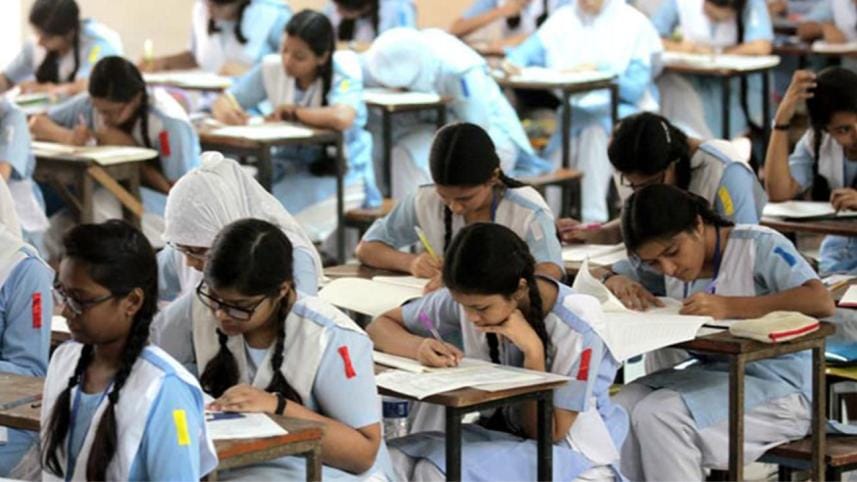Symptoms of a troubled future

The pass rate of Junior Secondary Certificate and Junior Dakhil Certificate examinations hit an all-time low in 2017 at 83.65 percent, a 9.41 percent dip from 2016. This is a weary situation for Bangladesh—a country with one of the highest populations in the world and known for producing lowly-paid unskilled labour in the international arena. Although government officials have no evidence so far as to why many examinees have not done so well this term, there are quite a number of reasons that are just waiting to be identified.
I would like to begin with a problem of a different nature—the problem at home. Parents are increasingly becoming over-involved in their children's education and imposing the habit of memorisation rather than creating a truly learning environment for them. This is especially true among the urban, middle and upper-middle class. This has caused their creativity and intellectual growth to be stunted. There is in fact evidence that children are performing poorly in areas where intellectuality and creativity are prime and memorisation unfeasible such as mathematics and English.
If not parents, then the coaching centres do the same thing, by handing out notes for children to memorise and regurgitate in the answer sheets. Corrupt school teachers often give out undue favours to students who take private tuitions from them, which is a major breach of their employment contract. The lives of students have become a quest for passing examinations with little or no regard to "real" education and learning. Its impact will be evident in the future. This approach will never work for them in situations that require analysis and solving complex problems and in the distant future, securing decent jobs. But by then, it is going to be difficult to make amends.
Another issue that bothers me is the issue of morality. How and why are children getting access to leaked question papers? Who is handing out question papers to these children of impressionable age? What will they learn if they are not incentivised the right way and what will their future be like? We are living in a nation where teachers and coaching centres are handing out question papers to examinees. In 2017 the Anti-Corruption Commission (ACC) submitted a report to the cabinet concluding that there is a syndicate of school staff, Bangladesh Government (BG) Press employees and government officials who are involved in question paper leaks. I fear that the loose morals of corrupt school teachers will pass on to the children and have damaging effects in shaping their personalities. Students who are working hard to excel in education will be highly demoralised by those who are taking a short cut to success. The education sector should be swept clean of such corrupt teachers and staff who are ruining children's futures for monetary gains.
The phenomenon of question paper leaks in public examination is a cancer for our society. It will leave a lasting impact at the individual and the national level. The government has been tolerant on this issue for far too long and stern measures are needed to be taken urgently. The ACC's report on the issue contains some effective means by which corruption in the education sector can be mitigated. On the issue of question paper leaks, the ACC recommended employing honest and meritorious teachers in the preparation of questions, ensuring that there are no conflicts of interest for anyone involved in the whole process, from preparing to distributing question papers, among others.
Most of these recommendations should have been implemented proactively by the education ministry a long time back to address this issue at an early and controllable stage. Rather than playing the blame game, the government and the education ministry should now take immediate initiatives to correct the wrongdoings of corrupt government officials and school teachers.
It would be the equivalent of playing with fire if we allow these problems to linger in the education sector. As a nation, we urge the government to take corrective steps to ensure that corruption in examinations be controlled and a strong monitoring committee be formed to oversee the doings of coaching centres and private tutors. The government should also charge corrupt individuals under the Public Examinations (Offences) (Amended) Act 1992 to send a message to the bigger syndicate that is involved in this crime. Certain responsibilities also lie with parents. Parents should nurture morality among young children, encourage learning (not memorising) and create an environment for them to explore their curiosities and gain knowledge.
Shifat Ara is a senior business consultant at Swisscontact-Katalyst.
The views expressed in this article are those of the author and do not reflect in any way the views of Swisscontact-Katalyst.

Comments